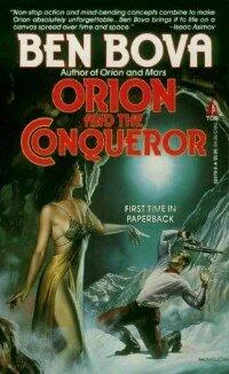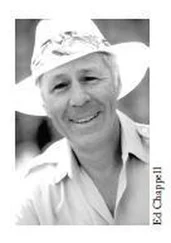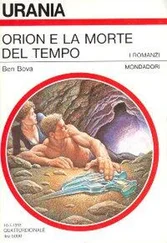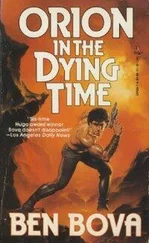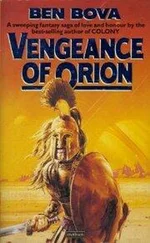Death is not the worst; rather, in vain
To wish for death, and not to compass it.
With two dozen picked men—none of them from the Macedonian nobility—I escorted Ketu from Pella to the capital of the Persian Empire. I realized why Philip had picked only commoners for this mission: he wanted no one from a noble family to be in danger of being held hostage by the Great King.
“The Persian Empire is so very, very large,” Ketu told me as we rode toward Byzantion, “that the Great King has several capitals, one for each season of the year.”
I was far more interested in his knowledge of the Buddhist way of life than his knowledge of the empire. I worried about Philip but was glad to be out of the reach of Olympias, free from her control, free from the intrigues of Pella. But Ketu’s description of the Way, with its hope of achieving Nirvana and getting off the wheel of life, was what I wanted to know more about.
“The Buddha described it as the Eightfold Path,” he told me. “It is the true road to enlightenment. The key to the Way is to reject all desire. Every craving, every wish, every yearning must be driven from your soul absolutely. Achieve true desirelessness and you achieve the final blessedness of Nirvana.”
“Desirelessness,” I repeated—somewhat dubiously, I admit.
“Oh yes, that is the key to it all,” Ketu assured me. “The Buddha has instructed us thusly, ‘The cause of human suffering is undoubtedly found in the thirsts of the physical body and in the illusions of worldly passion.’ ”
The illusion of worldly passion. That reminded me of what Aristotle had said about Plato’s belief in pure ideas as opposed to physical sensations. The passions of this world seemed real enough to me, though.
“ ‘If these thirsts and illusions are traced to their source,’ ” Ketu intoned, “ ‘they are found to be rooted in the intense desires of physical instincts. Thus desire seeks that which it feels desirable, even if it sometimes causes death.’ ”
“But these instincts are built into us,” I objected. “They are part of the human makeup.”
“Yes, of course,” Ketu agreed. “That is why it is so difficult to overcome them.”
“Can a person overcome them?”
“The Buddha certainly did,” he answered. “So have others. It is very, very difficult, of course, but not totally impossible.” Then he fell back to his sing-song recitation, “ ‘If desire, which lies at the root of all human passion, can be removed, then passion will die out and all human suffering will be ended. This is called the Truth of the Termination of Suffering.’ ”
It sounded impossible to me. Remove all desire: food, drink, love, companionship, power, respect, the yearning for glory, the instinct for self-preservation, the yearning for justice—how could a man live without any desire at all?
As we rode to Kallipolis on the Chersonese, as we sailed across the narrow strait of the Hellespont into Asia, as we rode the dusty trails and rugged bare hills of Lydia toward Sardis where the Royal Road began, I begged Ketu for every scrap of information he knew about the Way.
In turn, Ketu was fascinated by my vague recollection of earlier lives. Under his prodding each night, I began to remember more and more.
“The whole world was covered with ice and snow,” I told him one night as we sat before our flickering camp fire. “Winter lasted all year long. There were giant beasts, like elephants except that they were bigger, and covered with shaggy fur.”
Ketu’s eyes glowed in the firelight as he listened. We always kept apart from the other men while we spoke of these things. I had no desire to have them laugh at me or, worse, spend the night arguing and tossing their own ignorant opinions around the fire.
“You remember Troy?” Ketu would ask.
“I was there when Hector almost broke into the Achaian camp and wiped out the Greeks.”
“And Helen? Was she as beautiful as the legends say?”
“The most beautiful woman on earth,” I answered honestly. I remembered that Helen and I had been lovers, but I did not speak of it. For all his lectures to me about the Eightfold Path and the need to remove all desires from one’s soul, Ketu was far from desireless.
Often we camped among shepherds with the tinkling bells of their sheep lulling us to sleep. Once we reached the Royal Road, we spent most nights in caravansaries, old weather-worn inns along the main road leading into the interior of the land. Most of them looked as if they had been there for centuries.
In some places, though, the caravansaries were gutted, burned out, abandoned.
“This is not good,” Ketu would mutter over and again. “This is not good. The power of the Great King must be weakening.”
More than once we were forced to sleep alone in the dark wilderness with nothing but our guttering fire and the distant howling of wolves. But whether we slept in comfortable caravansaries or under the glittering stars, each night I gleaned more from Ketu.
“ ‘This is the noble truth of sorrow,’ ” he recited. “ ‘Birth is sorrow, age is sorrow, disease is sorrow, death is sorrow. All the components of individuality are sorrow. And this is the noble truth of the arising of sorrow. It arises from craving, which leads to rebirth, which brings delight and passion.’ ”
“But aren’t delight and passion good things?” I asked.
“No, no, no!” Ketu exclaimed. “The noble truth of the stopping of sorrow is the complete stopping of craving, being emancipated from delight and passion. That is the noble truth of the Way which leads to the stopping of sorrow. That is the Eightfold Path.”
Very, very difficult indeed, I thought.
By day our little band rode through the hilly wastes of Phrygia, sometimes alone, sometimes accompanying long mule trains loaded with timber and hides and grain from the rich farmlands along the fringe of the Black Sea. We passed other caravans coming from the east, stately camels and sturdy oxen carrying ivory from Africa, silks from far Cathay and spices from Hindustan. More than once such caravans were attacked by bandits and we helped to fight them off. Strangely, when we rode by ourselves, just the twenty-six of us with our horses and spare mounts and pack mules, no bandits bothered us.
“They can see that you are armed soldiers,” Ketu told me. “They know that there is very little in your packs worth stealing. The caravans are much more tempting to them. Or a few travelers straggling along the road who can be slain easily and despoiled. But soldiers—no, I do not think they will try to molest us.”
Yet, more than once I spied lean, ragged men on horseback eyeing our little group from a distant hilltop as we rode along the Royal Road. Each time I heard Ketu chanting to himself:
“I go for refuge to the Buddha. I go for refuge to the Doctrine. I go for refuge to the Order.”
His prayers must have worked. We were not attacked.
As we inched toward the Zagros Mountains that bordered the Iranian plateau we saw the Great King’s soldiers here and there along the road, usually near the wells or caravansaries. Their task was to protect travelers, but the roads were too long and the soldiers too few for such protection to be more than a token. Besides, they always demanded “tax” money in return for the little protection they gave.
“They’re worse than the bandits,” said one of my men as we rode past a checkpoint on the outskirts of a small town. I had just paid the captain of the local soldiers a few coins’ “tax.”
“Paying them is easier than fighting them,” I said. “Besides, they are satisfied with very little.”
Читать дальше
